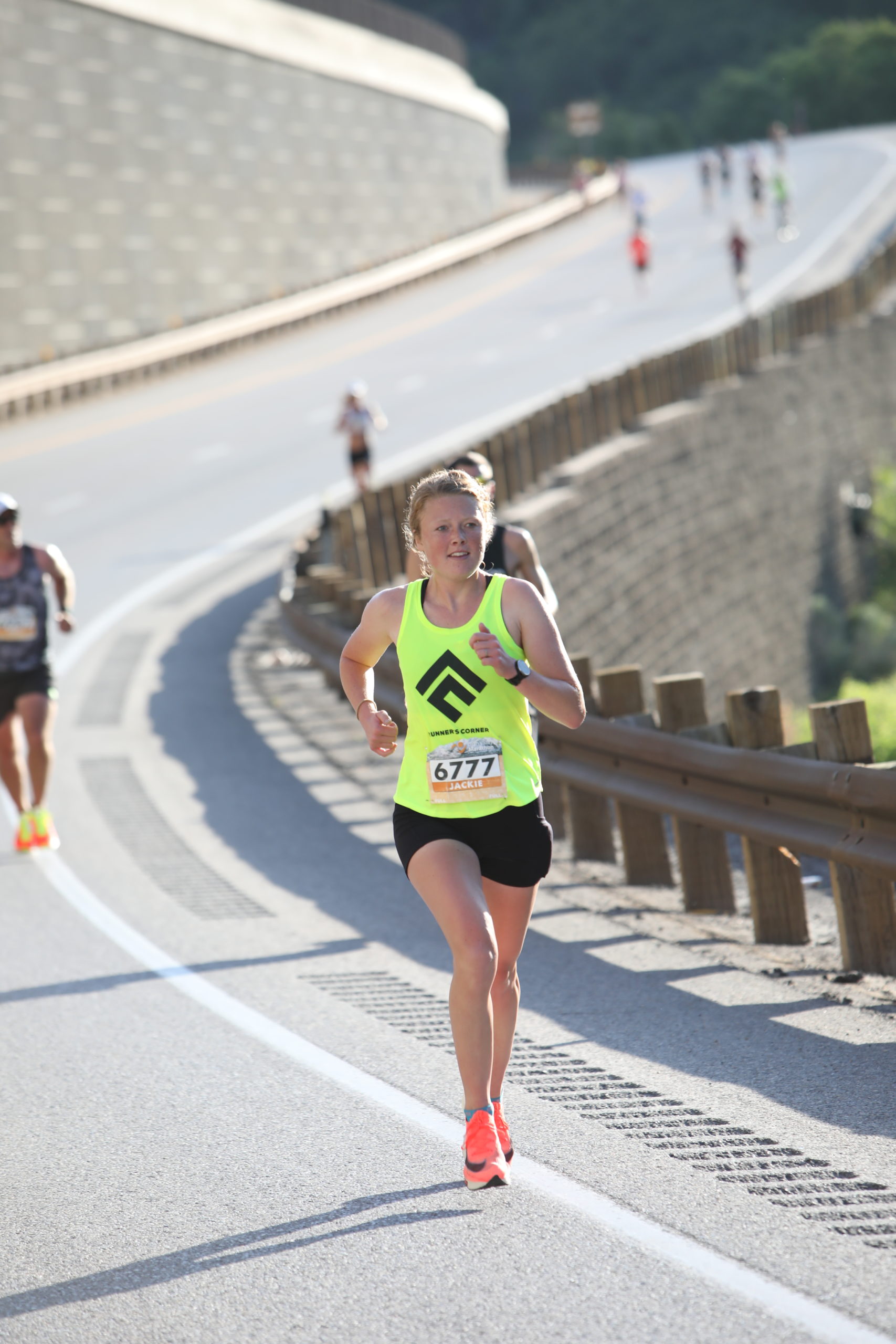Nutrition During A Taper

As the old saying goes, “the hay is in the barn”, and it’s time to rest up before your big race! At this point, you’ve done everything you can to build your fitness. Now is the time, to focus on doing the things that help you feel good and rested. It’s time to focus on nutrition during a taper.
This period of recovery before your race is commonly called a ‘taper.’ Tapers can last anywhere from 10 days to 3 weeks if you’re focusing on a long event lasting more than 2 hours in duration. For shorter races, your taper may only be a few days. Proper nutrition will help improve this process.
If your taper has begun and you are over a week out from your race, your primary nutrition focus should be on obtaining adequate calories. This is not the time to try and lose a few pounds. You should also not be hyper-focused with the number on the scale. In order for your body to have the energy it needs to recover from peak training weeks. This means, you must fuel it adequately. For the most part, this means you will maintain your regular eating schedule while decreasing your training load. This is especially important during longer tapers when your body has more training to recover from.
During the week of your race, the main objective of taper nutrition for races over 2 hours is to stock up your glycogen stores. We do this so they can be used as a valuable resource in the later stages of your race. Glycogen stores are best filled with carbohydrate. Increasing the percentage of your daily calories that come from carbohydrate is a key strategy to boosting your glycogen stores (aka carb loading). If you typically consume around 50% of your daily food as carbohydrate, you’ll want to bump that up to 60-70% during the 3 days leading up to your race. Carb loading in this manner is something that can and should be practiced during your peak weeks of training. This will help you avoid surprises during race week.
Nutrition During A Taper
A few quick tips for carb loading:
- Choose low fiber foods (white rice, white bagels, pretzels, etc.)
- Supplement with high carb beverages (Tailwind, Maurten 360, Gatorade, etc.)
- You may feel bloated or “fluffy” and that’s expected, it means you’re doing it right
- Any weight gain you experience is likely water weight from the increased carb intake. This will not hurt your performance on race day
If your race is shorter in duration (less than 2 hours), carb loading will not particularly benefit your performance. Focus on eating adequate overall calories with a balance of carbohydrates, proteins, and fats. Stick to your normal eating routines.
On the day before your race, continue to carb load (if needed for your race duration). If racing a shorter distance, this day should be largely normal, but with a focus on carbohydrate. Make sure to choose meals and snacks that include adequate amounts of easily digestible carbohydrate that you have practiced with & know will sit well with you. Increasing your electrolyte intake (particularly of sodium) can be beneficial, especially if you are racing in hot or humid temperatures. You can increase your electrolyte intake by sipping on 1-2 electrolyte-rich beverages the day prior. Also consider sprinkling extra salt on your food.
Additional Notes On Nutrition During A Taper
Caffeine: Anecdotal evidence suggests that caffeine is most effective on race day if an athlete does not consume caffeine in the few days prior to the event. If you are a regular caffeine user, I would not recommend going cold turkey in the days before your race. Try decreasing the total amount you consume without causing any withdrawal symptoms.
Alcohol: Evidence suggests a link between alcohol consumption and an athlete’s ability to recover from hard efforts & reach optimal endurance performance. My recommendation would be to avoid alcohol intake during your taper in order to maximize your recovery and ability to perform at your very best.
Refined Sugar: Many athletes believe that avoiding simple sugars or desserts during their taper will improve their performance on race day, but when you really take a look at the physiology of carb loading & athletic performance, you understand that simple sugars actually benefit you during that carb loading period. They are typically easier to digest, have less fiber, and have high amounts of carbohydrate (and lower amounts of protein & fats) packed into them – all of which are desirable qualities for meals & snacks during a carb load. Obviously I don’t recommend eating a dozen donuts for breakfast every morning leading up to your race. Simultaneously, I don’t discourage athletes from including a few desserts during their taper.
To end, being intentional with your nutrition during your taper will greatly benefit your performance. For the first week of a long taper, focus on eating adequate amounts of calories from a balance of carbohydrates, proteins, and fats. In the 3 days before a longer race, implement a carb loading strategy (more to come on this in the next few months). If you’re racing a shorter distance, focus on eating adequate amounts of food overall and include meals and snacks with plenty of carbohydrates on the day before your race. Pay attention to your intake of caffeine & alcohol. Consider consuming less caffeine on the days leading up to your race. This will increase it’s effectiveness and avoid alcohol during your taper if possible. Most of all – have fun, and good luck in your upcoming event!
References
- Vella LD, Cameron-Smith D. Alcohol, athletic performance and recovery. Nutrients. 2010;2(8):781-789. doi:10.3390/nu2080781
- Thomas DT, Erdman KA, Burke LM. Position of the Academy of Nutrition and Dietetics, Dietitians of Canada, and the American College of Sports Medicine: Nutrition and Athletic Performance. J Acad Nutr Diet. 2016 Mar;116(3):501-528. doi: 10.1016/j.jand.2015.12.006. Erratum in: J Acad Nutr Diet. 2017 Jan;117(1):146. PMID: 26920240.
- Rosenbloom, C. A., PhD, RD, CSSD. (2012). Carbohydrates and Exercise. In 1153665439 867118439 E. J. Coleman MA, MPH, RD, CSSD (Ed.), Sports Nutrition: A Practice Manual for Professionals (5th ed., pp. 134-135). Chicago, IL: Academy of Nutrition and Dietetics.

Jackie Hendrickson RD, MPH is a registered dietitian with a Masters Degree in public health nutrition from Utah State University. Jackie is the owner of Enduura Nutrition and loves coaching her athletes to their athletic potential through sustainable training & nutrition principles. She is an avid road & trail marathoner with a background in collegiate track, cross country, and competitive swimming. Jackie and her husband, Adam, were teammates in college and continue to pursue their running goals together. They live in beautiful Ogden, Utah with their 2 year old son, Lincoln.









